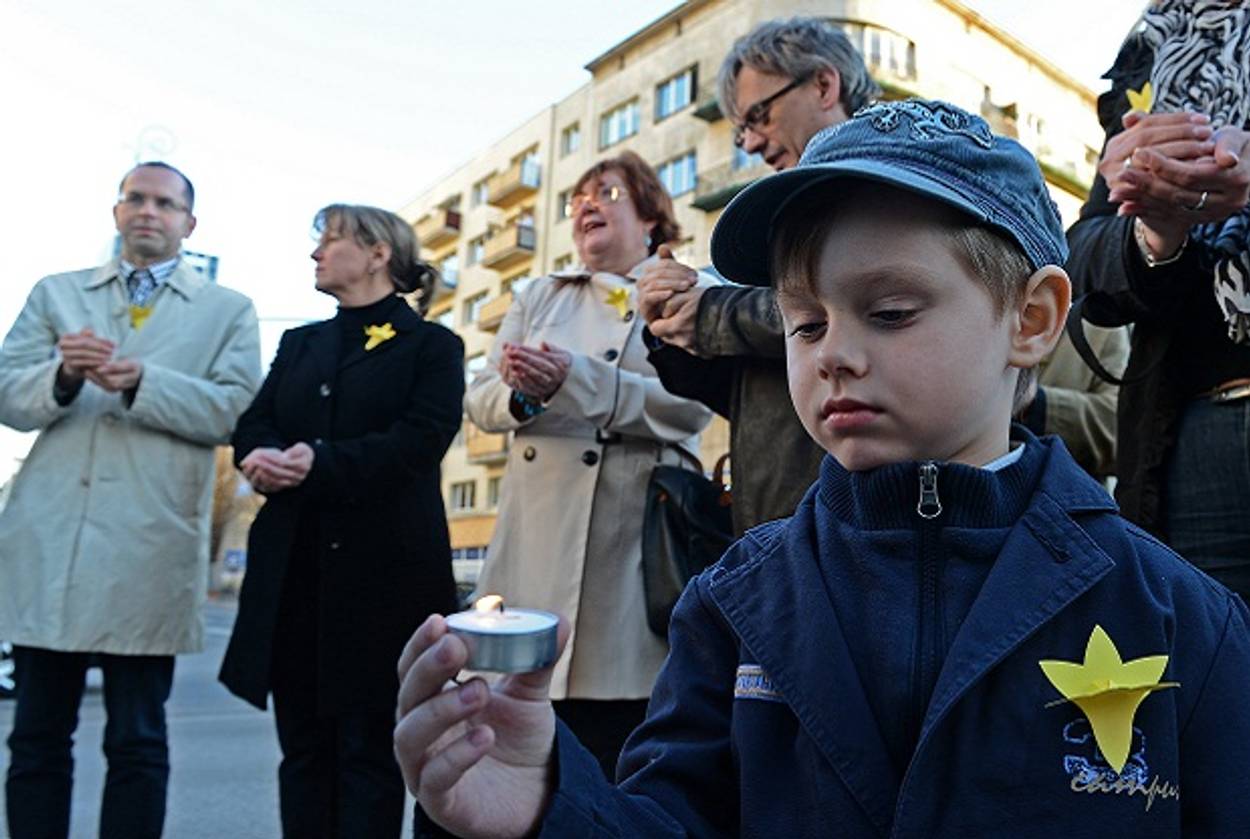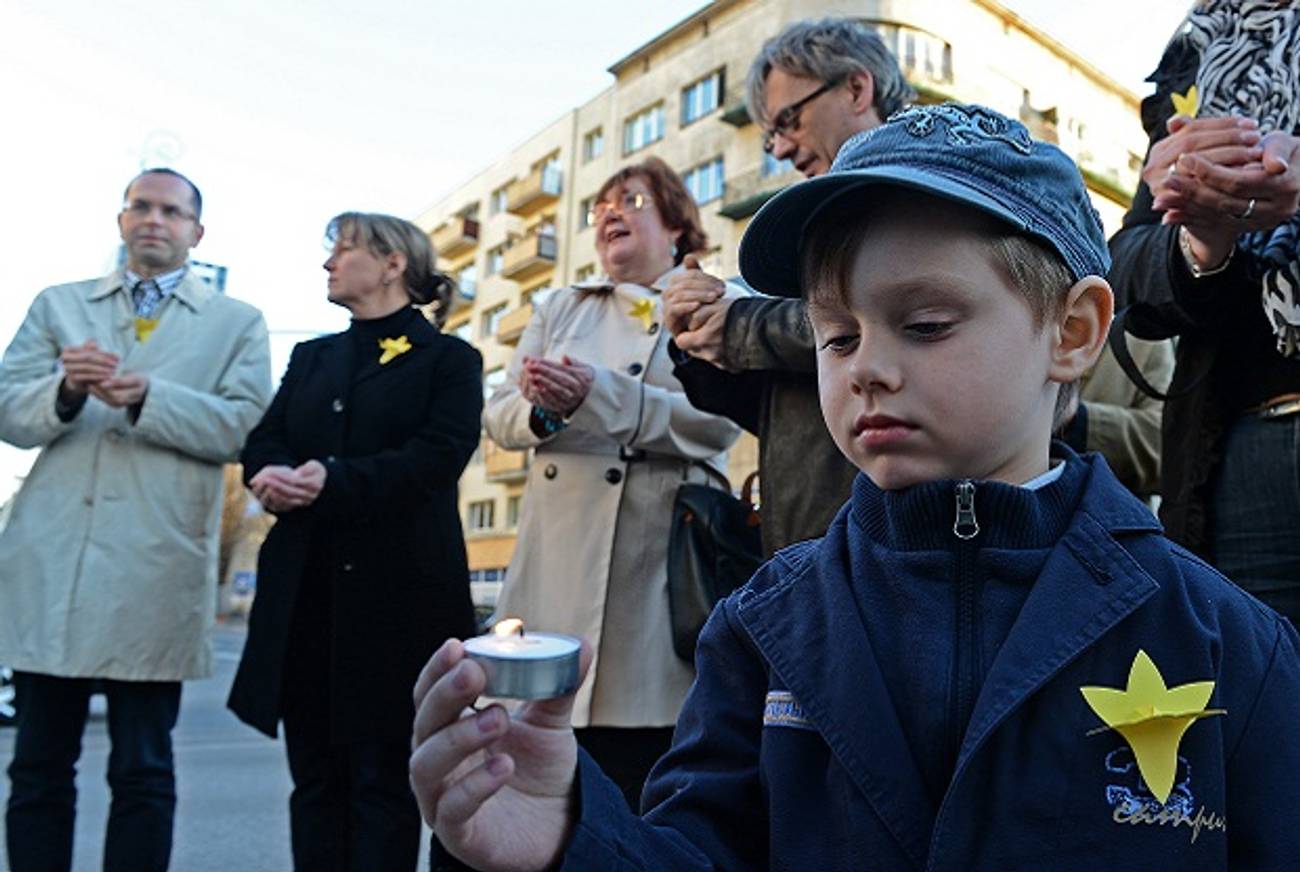Reconsidering Poland
A night with the Israeli Philharmonic in Warsaw




Last Thursday, after attending a concert of the Israel Philharmonic dedicated to the 70th Anniversary of the Warsaw Ghetto Uprising, I emailed a short video from the event to a group of friends. In the clip, the magnificent orchestra and the chorus of the Polish National Opera movingly sang Hatikvah, Israel’s national anthem.
“Of course this is very impressive but the man on the street hates us as passionately as always,” wrote one friend in reply. “The Poles were clearly more brutal than the Nazis.” Another wrote: “Interesting to see all the people who were seated. Isn’t it customary to stand for any national anthem. Just saying…”
These reactions were familiar to me—after all, 90% of Polish Jewry was wiped out during the war. But this narrative, popular among many Jews, stands in contrast to the one I heard repeatedly during a fascinating visit to Poland this last week: Prior to World War II, Poland was the long-time home to over three million Jews. True, they allow, there may have been some anti-Semitism, and it was certainly odious, but even the most anti-Semitic elements never planned genocide. That was strictly a German project and, as one said outright to me: “We were its victims, too.”
However, 350,000 Jews survived—which, as one person pointed out, is greater than the entire number of Jews calling England home in 2013. Those who remained, the narrative continues, were forced by Communism—or calculation—to hide their Judaism. Finally, today, those people and their offspring, seem willing to re-engage Judaism and tell their stories. As one close observer said to me, “for the first time in history, we are seeing the emergence of post-assimilation Judaism.” JCCs are opening in major cities; Jewish music and cultural festivals draw thousands of visitors, and Poland even hosted a Limmud Conference during each of the last three years.
In some ways, this process has been catalyzed by the government’s decision to create The Museum of the History of Polish Jews. This massive and spectacular effort, described in Tablet last week, represents the conjunction of a number of interests. If one wants to be crass, it might simply be chalked up to the search for Jewish tourism dollars. Those ascribing higher motives, such as Barbara Kirshenblatt-Gimblett, the program director for the museum’s core exhibition, claim that while the Monument to the Ghetto Heroes in front of the structure honors “how Jews died in the Warsaw Ghetto, the museum honors how they lived [in Poland] for a thousand years.”
In ceremonies and private conversations I kept hearing the trope that Poland is “Israel’s greatest friend in Europe,” and a country that insists that the history of Jews in Poland is part and parcel of Polish history. Last Friday, the anniversary of the Ghetto uprising, scores of volunteers across Warsaw handed out paper daffodils which were both a nod to the way some survivors adopted the daffodil as the Ghetto’s memorial flower, and to the six pointed yellow star which the Nazis forced Jews to attach to their garments. It was undeniably moving, during the entire weekend, to see thousands of people, probably 95% of whom were not Jewish, wearing that symbol of remembrance, and of solidarity with Polish Jews. And the government is not content with simply creating the museum; it recently announced a program that will ensure that every school child in Poland will visit the museum at least once.
So which Poland is it? A country anxious to whitewash a tragic part of its history, or a nation coming to grips with, and doing penance for, a dark chapter. While I sympathize with the skeptics, spending a few days in this nation’s capital and experiencing the atmospherics surrounding the anniversary of the uprising and the opening of the museum—the presence of the President, Prime Minister, and leading clergy, the blanket coverage in newspapers and on television, the streets filled with symbols of remembrance—led me to advise my e-mail correspondents to ponder the words of John F. Kennedy: “Change is the law of life, and those who look only to the past…are certain to miss the future.”
Morton Landowne is the executive director of Nextbook Inc.